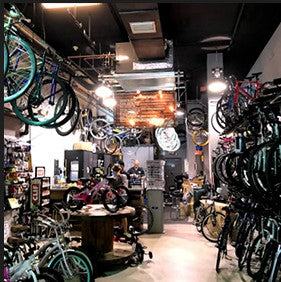Electric Transport Alone Will Not Get Us to Climate Targets
January 03 2022 – Rudy Marquez

Climate change has been an issue of global concern for a long time now, with governments and experts holding conventions and deliberations on ways to reduce carbon emissions, the main cause of climate change. This need to reduce carbon emissions has seen the world shift to cleaner energy sources, which has paved the way for the invention of electric transport such as electric cars. But while cleaner automobiles and trains will play a part in reducing carbon emissions and mitigating climate change, they are just a small part of what needs to be done.
Electric transportation is not a magic bullet to reducing carbon emissions.
Contrary to popular belief, electric transport is not a foolproof plan to solve climate change. For one, research, production of electric vehicles (EVS) and the development of electric trains are still in their formative stages. Despite the current advancements, it will take years before we can phase out Internal Combustion Engine (ICE) cars. We are, therefore, not moving fast enough to reduce carbon emissions.
Secondly, entirely phasing out ICE cars will be met with challenges as many countries rely on fossil fuels as a source of income. Oil-producing countries rely on petroleum and gas as their main sources of energy and revenue, and switching to cleaner energy sources would hurt their economies. Moreover, manufacturers of ICE cars would switch their attention to developing countries that find it economically cheaper to buy ICE cars than electric cars. Therefore, unless the price of EVS drastically falls relative to that of ICE vehicles, we will not be able to reduce carbon emissions. Rather, we will shift the problem to developing nations.
Thirdly, there is the often ignored issue of embodied carbon. While EVs produce less carbon from their operation, carbon is still emitted in their production and manufacture of batteries used to power them. This embodied carbon is likely to increase as manufacturers shift their attention to manufacturing electric-powered SUVs and trucks. The infrastructure on which these vehicles also accounts for a huge chunk of the emitted carbon. The world thus has to embrace other alternatives in addition to electric vehicles.
How we design our cities will accelerate our efforts to reduce carbon emissions.
Phasing out ICE cars and building EVs with less embodied carbon will take time. But there are measures we can take to reduce carbon emissions in the present. These strategies entail building compact cities. Much of the operational carbon emitted in the transport industry results from the need to drive to access products, services, and essential amenities. Building compact cities in which homes, workplaces, and services are within walkable distance will see us drive less, thus reducing the number of vehicles needed on our roads.
Designing streets such that there are more bike lanes and sidewalks will make it easier to get around the city without driving. Switching to these modes of transport will reduce green gases by 40% treehugger. There are also health benefits to these alternatives.
Are you ready to play your part in reducing carbon emissions? Then Loco Cycles is ready to partner with you in this endeavor. We have a wide selection of bicycles to help you conveniently navigate around the city. Try us today. We will make sure you get the right fit.

